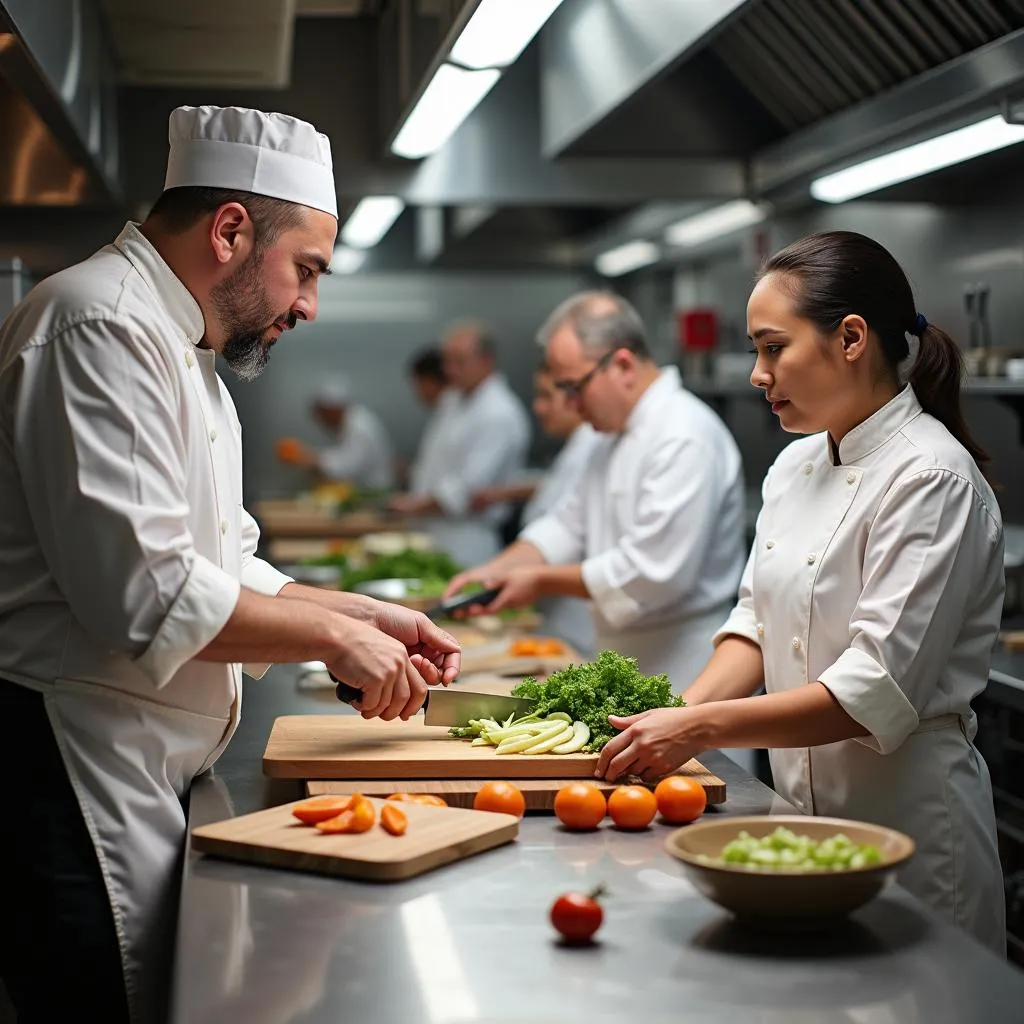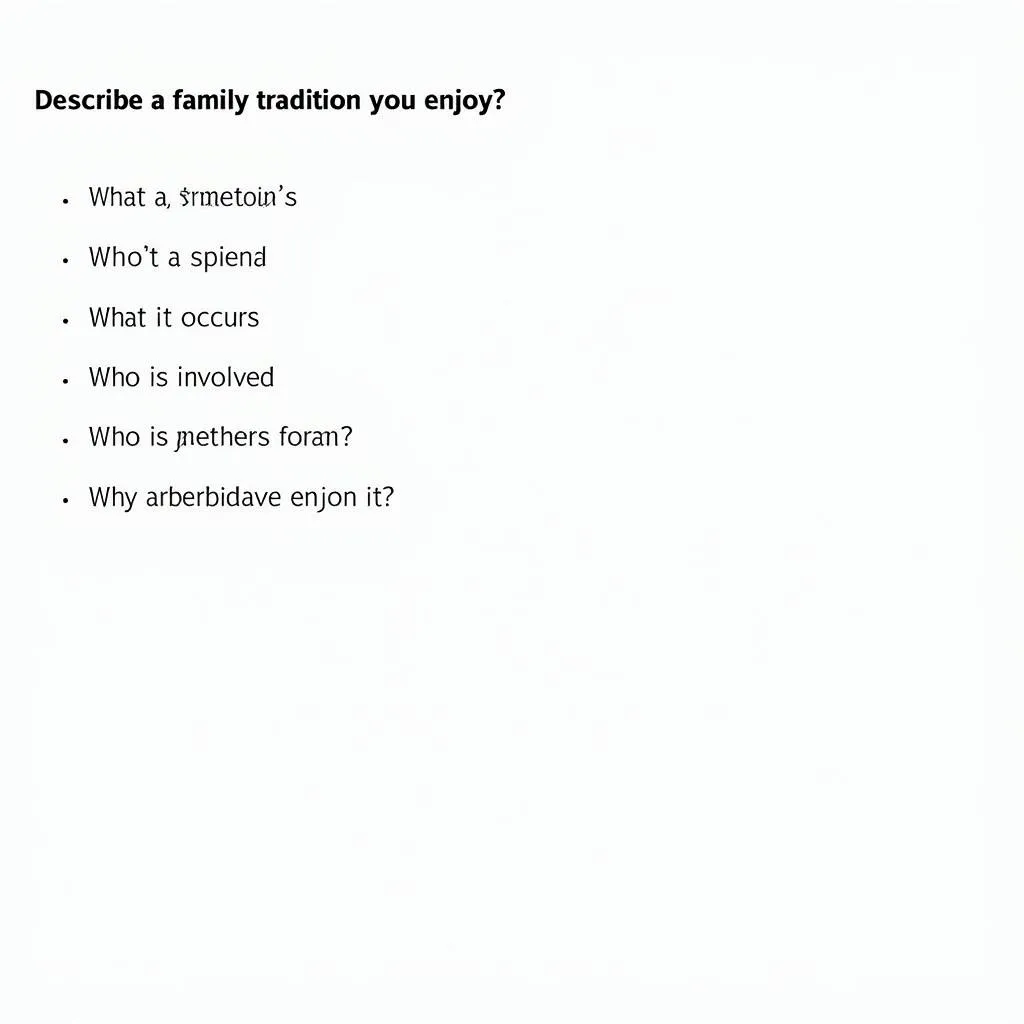Planning a vacation is an exciting topic that often comes up in IELTS Speaking exams. It’s a relatable subject that allows candidates to showcase their language skills while discussing personal experiences and future aspirations. In this article, we’ll explore how to effectively answer questions about describing a vacation you are planning, providing sample responses for different band scores and valuable tips to help you excel in your IELTS Speaking test.
Part 1: Introduction and Interview
In Part 1 of the IELTS Speaking test, you may encounter questions related to vacations and travel. Here are some common questions and a sample answer:
- Do you like to travel?
- Where do you usually go on vacation?
- What type of vacation do you prefer?
- How often do you go on vacation?
Let’s focus on question 3: “What type of vacation do you prefer?”
Sample answer (Band 7-8):
“I’m quite fond of active vacations that allow me to explore new cultures and engage in outdoor activities. I find that a mix of sightseeing and adventure really appeals to me. For instance, I enjoy hiking in scenic locations or trying out water sports in coastal areas. These types of vacations not only help me unwind but also provide opportunities to broaden my horizons and create lasting memories.”
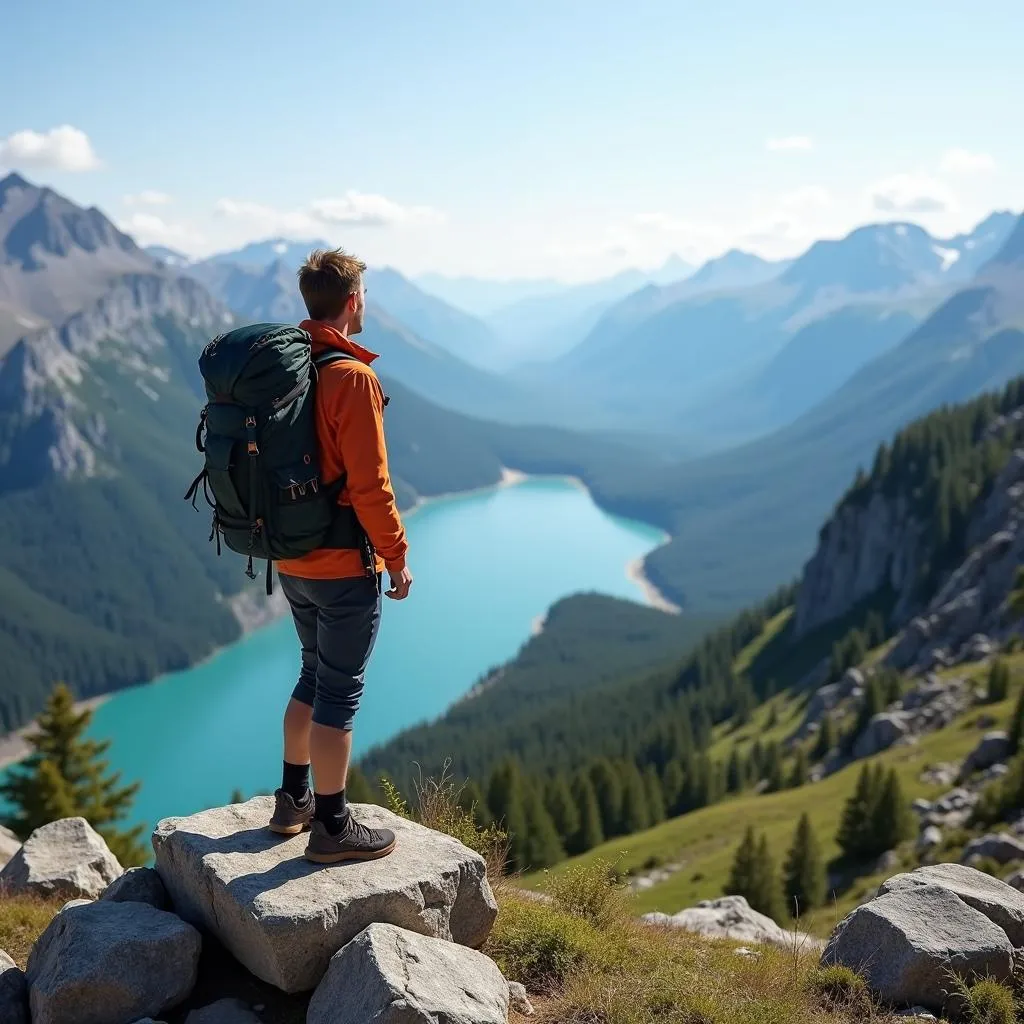 IELTS Speaking: Expressing vacation preferences
IELTS Speaking: Expressing vacation preferences
Part 2: Long Turn
In this section, you’ll be given a cue card with a topic to speak about for 1-2 minutes. Here’s a sample cue card related to describing a vacation you are planning:
Describe a vacation you are planning
You should say:
- Where you plan to go
- Who you will go with
- What activities you hope to do
- And explain why you chose this particular vacationSample answer (Band 6-7):
“I’m currently planning a vacation to Bali, Indonesia. I’ve always been fascinated by its beautiful beaches and rich culture. I’m going with my best friend, Sarah, who shares my love for travel and adventure.
We’re hoping to do a variety of activities during our trip. First on our list is visiting some ancient temples, like the famous Tanah Lot. We also plan to try surfing at Kuta Beach and maybe even take a cooking class to learn how to make traditional Balinese dishes.
One of the things I’m most excited about is hiking up Mount Batur to watch the sunrise. It’s supposed to be a breathtaking experience. We also want to explore the rice terraces in Ubud and maybe do some yoga classes there.
I chose this vacation because I’ve heard so many great things about Bali. It seems to offer a perfect balance between relaxation and adventure. Plus, the warm climate and friendly locals are very appealing. I think it will be a great opportunity to immerse ourselves in a different culture and create some unforgettable memories.”
Sample answer (Band 8-9):
“I’m in the process of organizing what I hope will be an unforgettable journey to the captivating island of Bali, Indonesia. This destination has long been on my bucket list, primarily due to its reputation for stunning natural beauty and rich cultural heritage.
I’ll be embarking on this adventure with my long-time friend, Sarah, who’s equally passionate about experiencing diverse cultures and stepping out of our comfort zones. We’ve been meticulously planning this trip for months, aiming to strike a perfect balance between relaxation and exploration.
Our itinerary is brimming with exciting activities. We’re particularly keen on immersing ourselves in the local spirituality by visiting ancient temples such as Tanah Lot and Uluwatu. To satiate our adventurous spirits, we’ve scheduled surfing lessons at the renowned Kuta Beach and a sunrise trek up Mount Batur, which I’ve heard offers breathtaking panoramic views.
In an effort to delve deeper into Balinese culture, we’ve arranged to participate in a traditional cooking class. This will not only allow us to savor authentic local cuisine but also gain insights into the culinary traditions that have been passed down through generations.
We’re also planning to spend a few days in Ubud, known as Bali’s cultural heart. Here, we hope to explore the iconic rice terraces, possibly try our hand at some traditional crafts, and maybe even attend a yoga retreat to rejuvenate our minds and bodies.
The decision to choose Bali for our vacation was multifaceted. Firstly, its diverse offerings cater to our varied interests – from pristine beaches to lush landscapes, and from ancient traditions to modern wellness practices. Moreover, the renowned hospitality of the Balinese people and the opportunity to experience a culture so different from our own were major drawcards.
Ultimately, I believe this vacation will provide us with a perfect blend of relaxation, adventure, and cultural enrichment. It’s an opportunity to broaden our horizons, challenge ourselves, and create memories that will last a lifetime.”
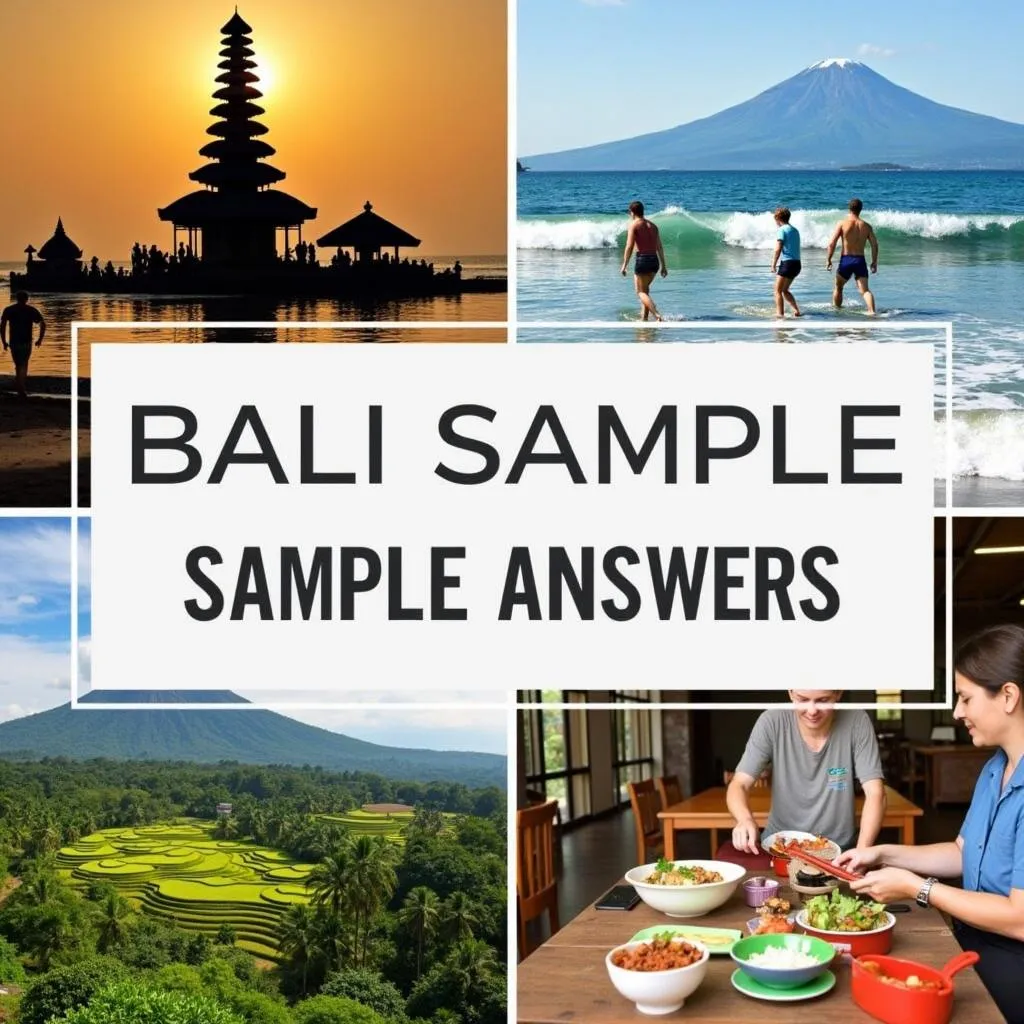 Planning diverse activities for a Bali vacation
Planning diverse activities for a Bali vacation
Follow-up questions:
- How long do you plan to stay in Bali?
- What do you think will be the most challenging part of your trip?
- How do you think this vacation will be different from your previous ones?
Sample answer for question 2 (Band 8-9):
“I anticipate that the most challenging aspect of our trip might be adapting to the tropical climate, particularly during our more strenuous activities like the Mount Batur trek. Additionally, navigating the local transportation system could prove to be a bit daunting, especially in more remote areas. However, I see these challenges as opportunities for personal growth and to enhance our problem-solving skills. We’re approaching the trip with an open mind and a willingness to embrace the unexpected, which I believe will help us overcome any obstacles we may encounter.”
Part 3: Two-way Discussion
In this section, the examiner will ask you more abstract questions related to the topic. Here are some potential questions and sample answers:
- How has technology changed the way people plan their vacations?
- Do you think tourism can have negative impacts on local communities?
- What are some benefits of traveling to different countries?
Let’s focus on question 3:
Sample answer (Band 7-8):
“Traveling to different countries offers numerous benefits. Firstly, it broadens our perspectives by exposing us to diverse cultures, traditions, and ways of life. This exposure can help us become more open-minded and tolerant of differences.
Secondly, travel often challenges us to step out of our comfort zones, which can lead to personal growth and increased self-confidence. For example, navigating a foreign city or communicating in a different language can be quite empowering.
Moreover, visiting other countries can enhance our understanding of global issues. We might gain firsthand insights into environmental challenges, social dynamics, or economic situations that we previously only read about.
Lastly, travel creates opportunities for cultural exchange. By interacting with locals and sharing our own experiences, we contribute to fostering mutual understanding between different societies.”
Sample answer (Band 8-9):
“The benefits of traveling to different countries are multifaceted and profound. Primarily, it serves as a catalyst for personal growth and self-discovery. When we immerse ourselves in unfamiliar environments, we’re compelled to adapt, problem-solve, and often reassess our own values and beliefs. This process of self-reflection can lead to increased self-awareness and a more nuanced understanding of our place in the world.
Furthermore, international travel is an unparalleled educational experience. It provides vivid, firsthand exposure to diverse cultures, histories, and social structures that textbooks simply cannot replicate. This experiential learning fosters cultural intelligence and empathy, which are increasingly valuable in our globalized world.
Travel also plays a crucial role in breaking down stereotypes and preconceptions. Personal interactions with people from different backgrounds often challenge our assumptions and media-driven narratives, promoting a more balanced and informed worldview.
Additionally, experiencing various political and economic systems firsthand can deepen our understanding of global affairs and potentially inspire us to become more engaged global citizens. It may motivate us to advocate for positive change in our own communities or on a broader scale.
Lastly, the memories and relationships forged through travel can be incredibly enriching on a personal level. These experiences often become cherished parts of our life stories, contributing to our overall well-being and life satisfaction.
In essence, traveling to different countries is not just about seeing new places; it’s about expanding our mental horizons, challenging our perspectives, and fostering a more interconnected and empathetic global community.”
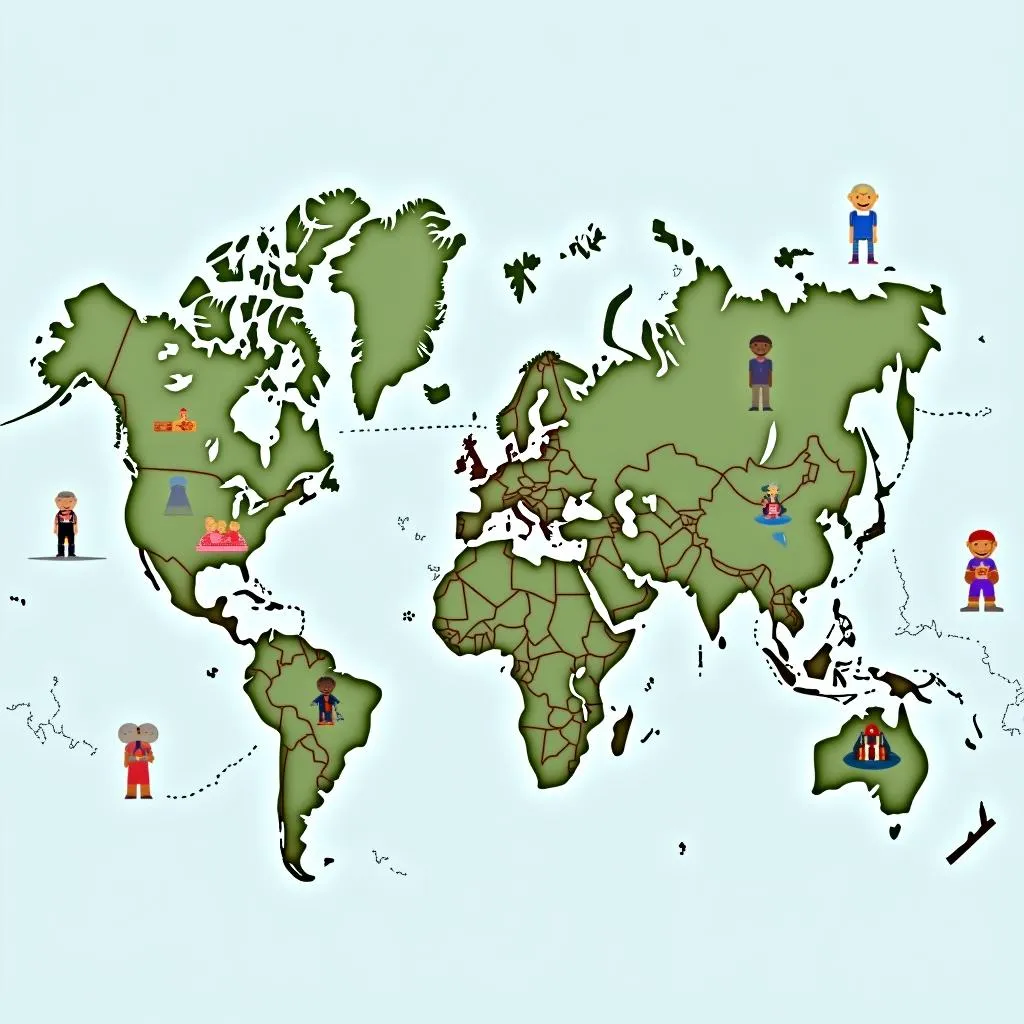 Benefits of traveling to different countries
Benefits of traveling to different countries
Key Vocabulary and Phrases for High Scores
To boost your IELTS Speaking score, incorporate these advanced vocabulary items and phrases into your responses:
-
Broaden one’s horizons /ˈbrɔːdn wʌnz həˈraɪznz/ (idiom): To expand one’s range of experiences, knowledge, or interests.
Example: “Traveling to different countries helps broaden one’s horizons and gain new perspectives.” -
Immerse oneself /ɪˈmɜːs wʌnˈself/ (phrasal verb): To become completely involved in something.
Example: “I plan to immerse myself in the local culture by staying with a host family.” -
Unforgettable journey /ʌnfəˈɡetəbl ˈdʒɜːni/ (collocation): A trip that leaves a lasting impression.
Example: “Our trek through the Himalayas was truly an unforgettable journey.” -
Cultural enrichment /ˈkʌltʃərəl ɪnˈrɪtʃmənt/ (noun phrase): The process of improving or enhancing one’s understanding and appreciation of different cultures.
Example: “Visiting museums and historical sites provides great opportunities for cultural enrichment.” -
Step out of one’s comfort zone /step aʊt əv wʌnz ˈkʌmfət zəʊn/ (idiom): To do something that you find difficult or that makes you feel nervous.
Example: “Trying exotic local dishes is a great way to step out of your comfort zone while traveling.”
Examiner’s Advice
To excel in the IELTS Speaking test when discussing vacation plans:
- Practice describing past trips and future plans to improve fluency and vocabulary related to travel.
- Use a variety of tenses (past, present, future) to demonstrate your grammatical range.
- Incorporate personal anecdotes and opinions to make your responses more engaging and authentic.
- Develop your ideas fully, providing reasons and examples to support your points.
- Use linking words and phrases to improve coherence and cohesion in your responses.
Remember, the key to success in IELTS Speaking is not just about what you say, but how you say it. Aim for clarity, fluency, and natural expression, and don’t be afraid to showcase your personality and interests through your responses.
For more practice on travel-related topics, you might find it helpful to describe a family trip you enjoyed or describe a city you visited that left a strong impression on you. These exercises can further enhance your ability to discuss travel experiences in the IELTS Speaking test.
By following these tips and practicing regularly, you’ll be well-prepared to tackle any vacation-related questions in your IELTS Speaking exam with confidence and skill.
